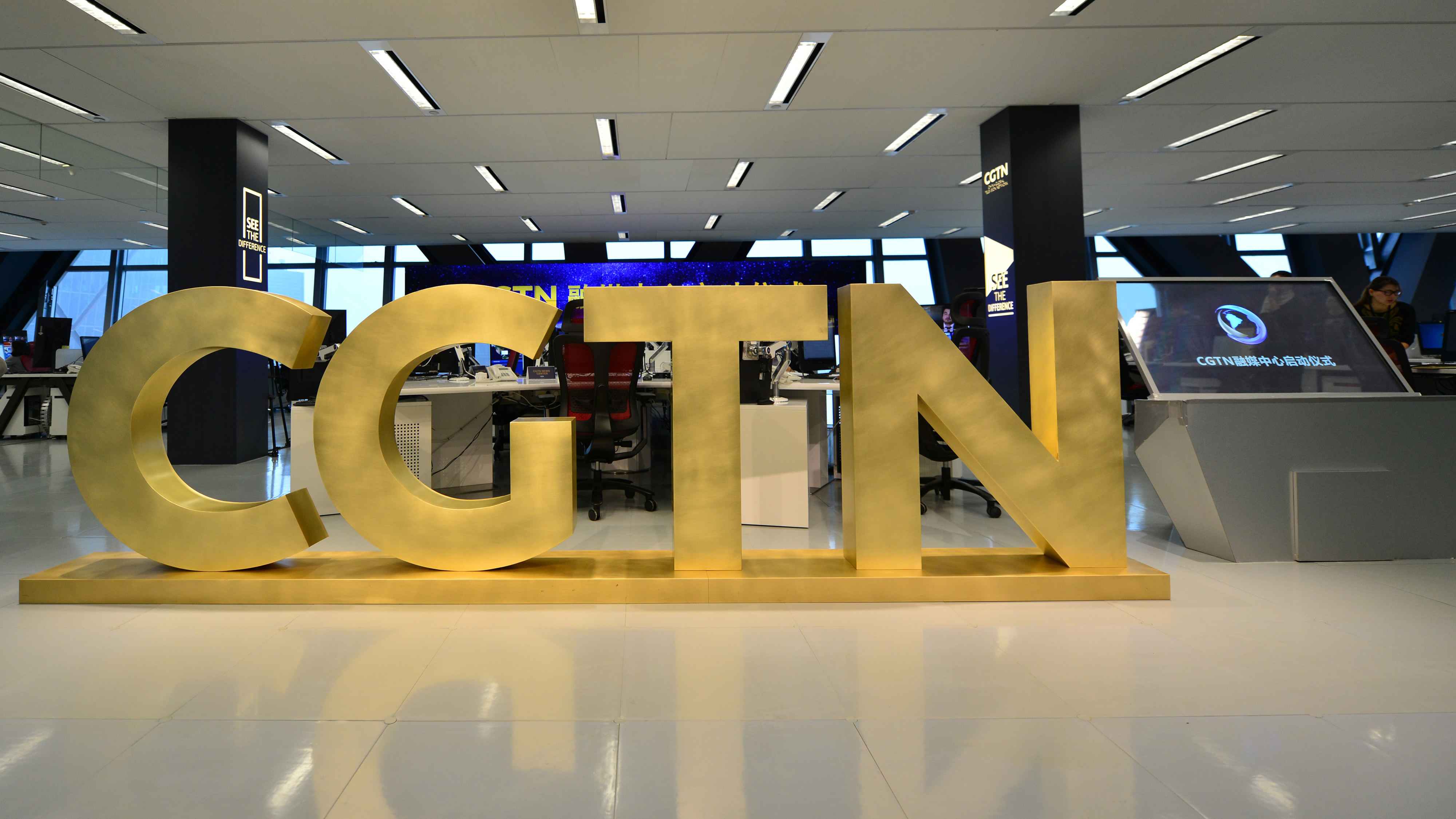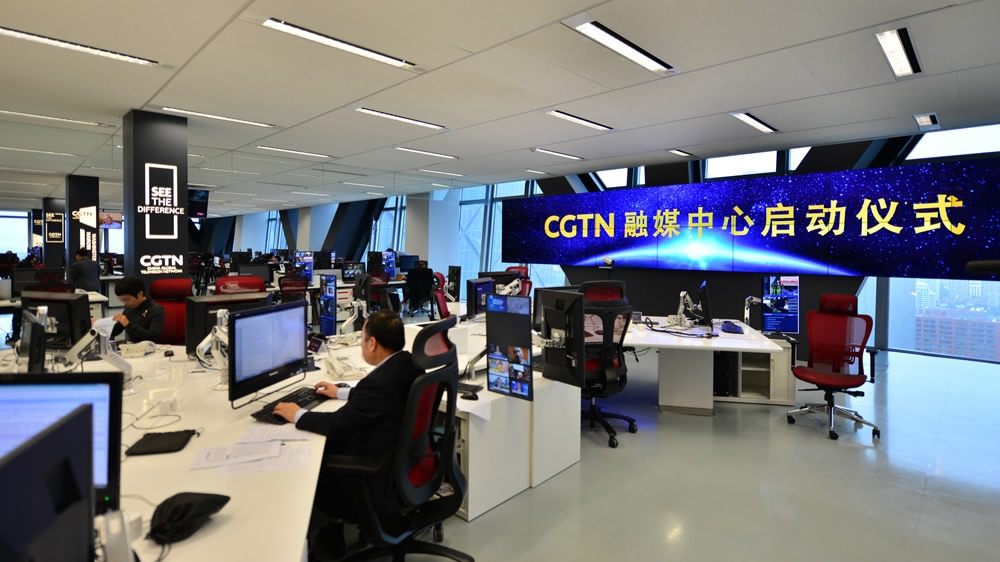
Editor's note: Hannan Hussain is a foreign affairs commentator and author. He is a Fulbright recipient at the University of Maryland, the U.S., and a former assistant researcher at Islamabad Policy Research Institute. The article reflects the author's opinions and not necessarily the views of CGTN.
On February 4, UK media watchdog Ofcom abruptly withdrew the broadcasting license of a leading Chinese international media organization, alleging so-called editorial responsibility conflict with UK's broadcasting laws.
"In the UK, broadcasting laws made by Parliament state that broadcast licensees must have control over the licensed service," said Ofcom in its revocation decision. "Our investigation concluded that (the licence-holder) .. does not meet the legal requirement of having control over the licensed service, and so is not a lawful broadcast licensee."
From the outset, the decision is more political than legal. British broadcasting regulators have cited the Communist Party of China to allege configuration of content that is presumably "controlled" from the top. More concrete distinctions of editorial autonomy, such as those distinguishing editorial oversight from Britain-based media organizations, remain absent from Ofcom's investigation notice.
As a result, the presumption of political interference as the basis for broadcasting violations sets a dangerous and selective precedent for press freedom in the United Kingdom, a leading proponent of media independence in the West.
The UK's Office of Communications' 23-page ruling builds on a legal and regulatory framework from three Broadcasting Acts (1990, 1996 and 2003), where the "right to freedom of expression" is inextricably tied to a "broadcaster's freedom to impart and the audience's freedom to receive information."
From an operational lens, evidence of interference by a public authority then should serve as a concrete violation of editorial independence, where the "political nature" of the transgression is demonstrated. Instead, by Ofcom's own admission, the key trigger to its revocation decision is a February 2020 compliant from Safeguard Defenders – controversial anti-China human rights collective.
With its February 4 judgement, Ofcom succeeds in affording legal cover to such targeted propaganda within the UK, introducing two separate standards of inquiry against performance-driven broadcasting enterprises. Nowhere is this dichotomy more evident than in the case of The British Broadcasting Corporation (BBC).

The launching ceremony of CGTN News Center. /CGTN
The launching ceremony of CGTN News Center. /CGTN
BBC enjoys public ownership status, but its freedom to impart information – as stressed by UK law – is presumed as independent. Consider the fact that Ofcom has routinely accused Chinese broadcasters of breaching rules of "fairness and privacy," pointing to choreographed opposition parties' protests in Hong Kong, and alleging the Chinese international media organization broadcast "forced confessions" of British journalist Peter Humphrey.
By that logic, the BBC demands the hardest eye for peddling falsehoods on "rape" and "forced labor" in China's Xinjiang Uygur Autonomous Region, while leaving the burden of validating its claims publicly unaddressed. No public apology has come to the fore, nor have BBC's human rights falsehoods been scrutinized against demonstrated sovereign interference. Barely a muscle moved.
Collectively, these become significant variables for maintaining regulatory oversight credibility, especially when Ofcom – as a public authority – is obligated under the UK Parliament's Human Rights Act (Section 6, 1998) to demonstrate its actions are not incompatible with the European Convention on Human Rights. By applying the spirit of that convention to select broadcasters, at the expense of others, Ofcom represents a compromise of its very commitment.
Moving forward, reluctance to reassess the license revocation decision will likely accomplish one of two outcomes. First, it will permit pockets within the UK parliament to leverage the motivated judgement and politicize rhetoric towards China.
Early signs reflect in the hostile remarks of Julian Knight – chair of UK's digital, culture, media and port parliamentary committee – who touted the judgement as "confirmation" of the CPC's alleged control and partisanship vis-à-vis informed broadcasting in the UK.
Second, such an approach will continue to deny a level playing field to the Chinese international media agency and associated personnel, despite the agency's "complete editorial independence" being communicated to Ofcom and acknowledged on-record.
The loss of legal cover to a compliant broadcasting organization within the UK runs contrary to legal safeguards enjoyed by UK-based broadcasters in China, raising serious questions of reciprocity in a time-tested political relationship.
The purported evidence employed in the course of Ofcom's targeted investigation proves China's English-language news channel is the subject of a self-imposed accountability double-standard, where corporations such as the BBC are given a free pass on regulatory scrutiny, and controversial human rights collective drive predetermined outcomes.
Ofcom's abrupt decision to pull the Chinese broadcaster off-air in the UK, without establishing so-called partisan control from the Chinese state in media affairs, plays directly into the hands of a toxic political narrative on Beijing, one where responsible broadcasting is unquestionably tied to regime type and power politics – allowing UK regulators to set that prejudice in stone.
(If you want to contribute and have specific expertise, please contact us at opinions@cgtn.com.)

